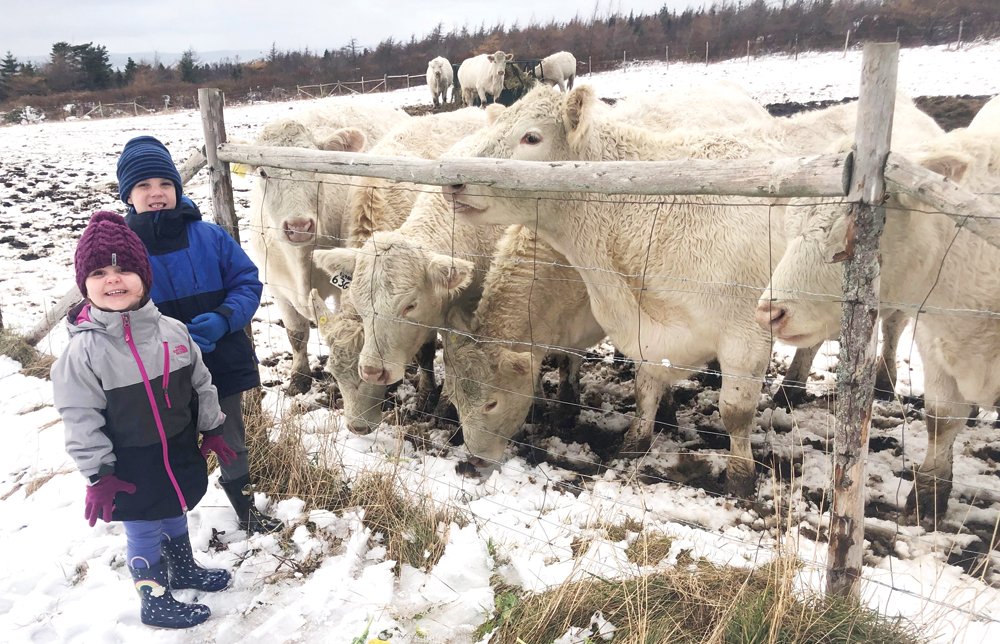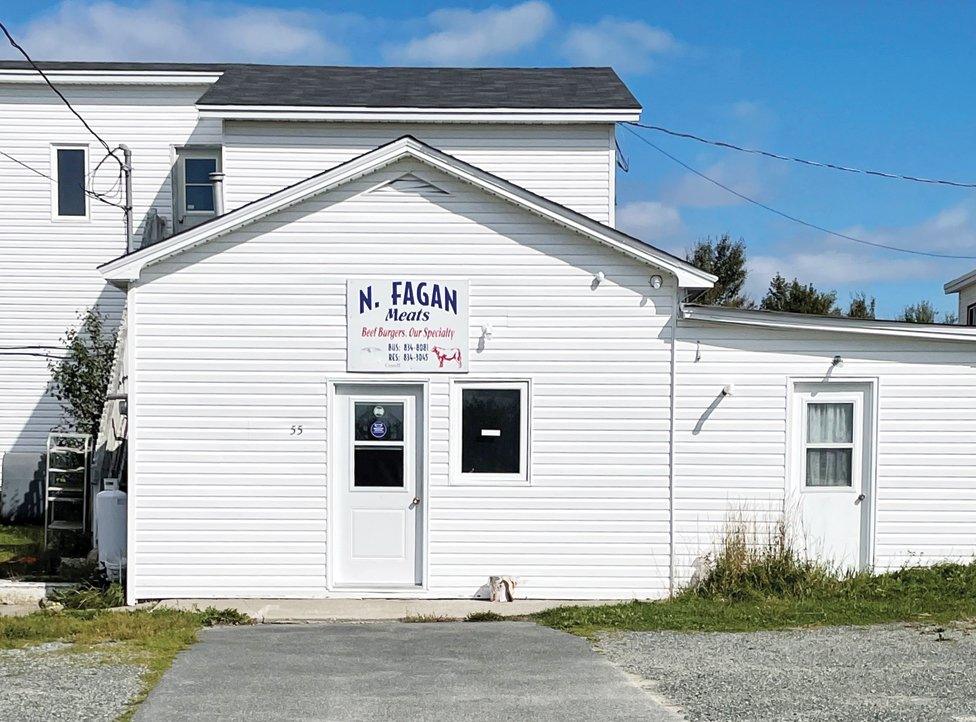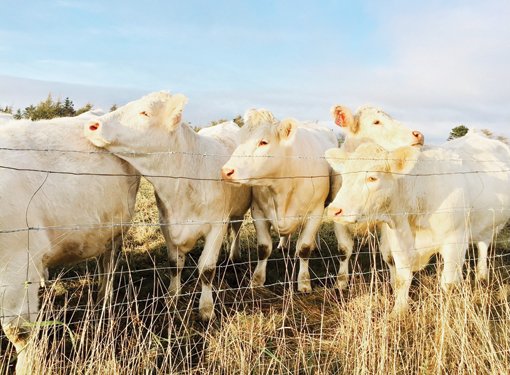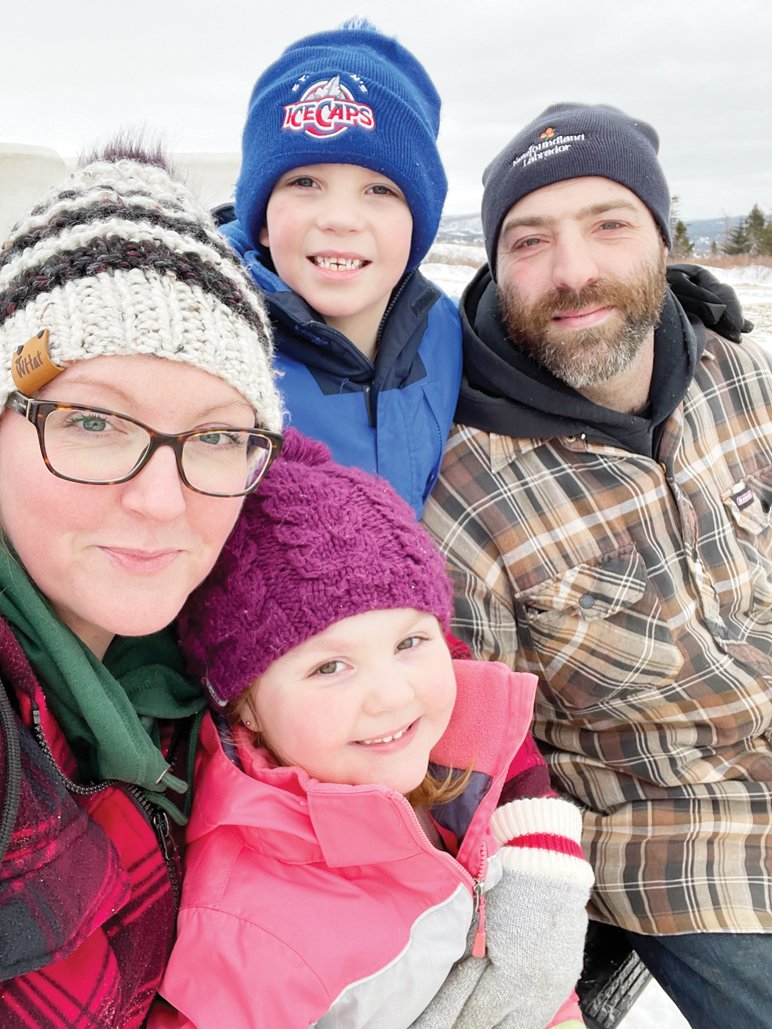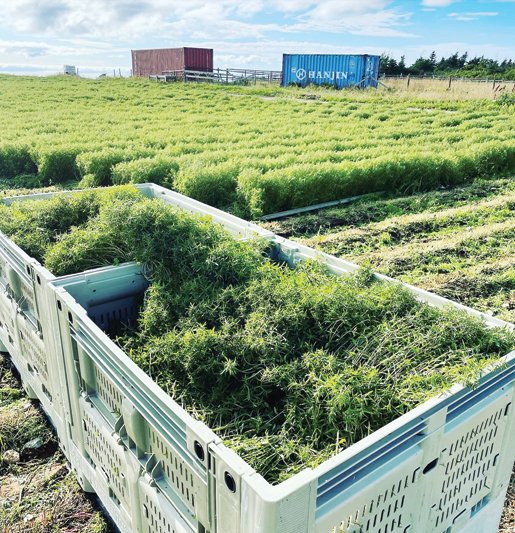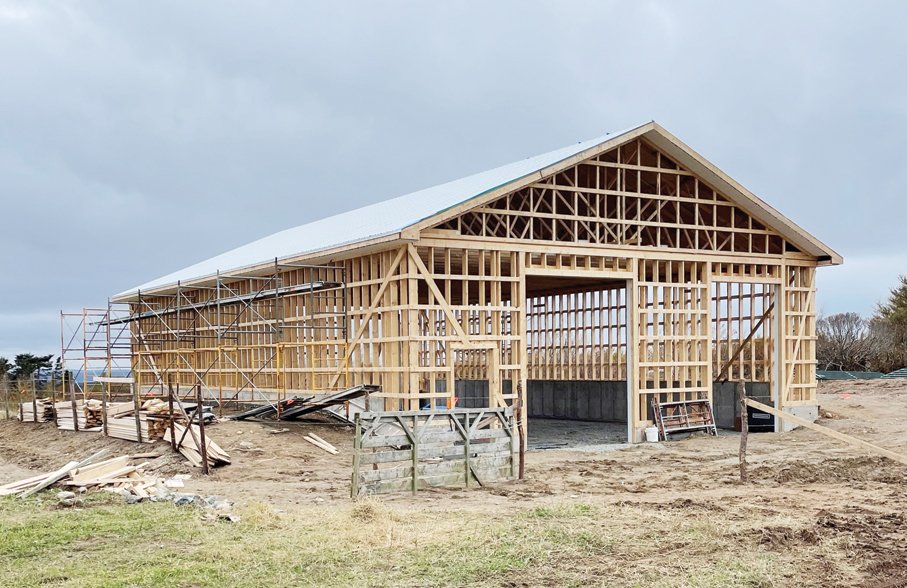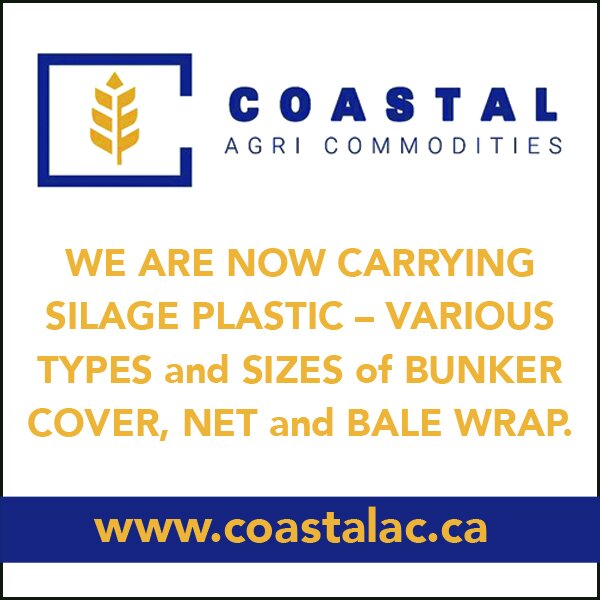Raising beef on the rock
/by George Fullerton
Matthew Carlson with the Newfoundland and Labrador Federation of Agriculture recommended Nelson Fagan Jr. as someone who could provide insight into the province’s beef industry. We met at his farm property in the community of Conception Bay South in late September.
Fagan is chair of the province’s cattlemen’s association and is well involved in agriculture initiatives. He overflowed with enthusiasm as he gave a tour of his property, identifying a field of Summer savoury, his son’s patch of Sweet corn, and the foundation of a new cattle barn under construction. Off to the side were a couple of sea cans (shipping containers) and a motorhome.
“Like most farmers in Newfoundland, farming is only a part time occupation,” Fagan said of his situation. “I also hold down a carpentry job in St. John’s and I help operate our meat shop with family and hired staff.
The family business is N. Fagan Meats, which is based in Conception Bay South.
The new barn, measuring 40-by-60 feet, will house Fagan’s beef herd, including 10 purebred Charolais cows and their calves, replacement heifers, and the herd bull. He said he planned on having the barn completed this year.
Fagan obtained the 10 Charolais cows as pregnant heifers through the provincial government’s Beef Industry Enhancement Initiative.
The Charolais heifers arrived in October 2020 and gave birth in the spring. Fagan used the sea cans as a temporary means to shelter his cattle from the elements.
“During calving, I would come home from my carpentry job in St. John’s and have supper with my wife Kayla and our children Austin and Abigail, then come here to check on the cows and feed them, then I would stay in the camper and get up every couple of hours to check for calving,” said Fagan. “Through the day, Kayla and my father would take turns checking for calving issues. It was not a great setup, but we got through calving, and we were determined to build this barn.”
CHOOSING CHAROLAIS
Fagan said he made it clear in his Beef Industry Enhancement Initiative proposal that he wanted Charolais.
“I have always been very fond of Charolais cattle, and I believe they will do well in our environment and produce great carcass grades and excellent product on the shelf,” he said.
Viewing the Fagan herd required a 40-minute drive to the community pasture in Bay Roberts. The drive with Fagan and his wife provided an opportunity to learn more about their livestock operation.
Fagan became chair of the provincial cattlemen’s association in 2017 and began a lobbying campaign seeking government support for a beef genetics improvement scheme.
“My father has been slaughtering cattle and marketing meat all his life, and he has been complaining in recent years that slaughter cattle are getting noticeably smaller,” he said. “He is convinced it is a result of poor genetics.”
In Newfoundland, beef cattle are typically sent to a community pasture for the grazing season.
“And often there is inconsistent scrutiny of the bulls on the pasture,” said Fagan. “Sometimes bulls stay on the same pasture year after year and sometimes end up breeding their own daughters, which definitely lowers genetics.”
Hence the cattlemen’s association’s lobbying campaign for new genetics.
“We lobbied consistently and after three years we had a program which invited applications to source 20 groups of 10 pregnant purebred females,” said Fagan, referring to the Beef Industry Enhancement Initiative. “Applicants were required to have experience husbanding cattle and also have shelter and feed availability. The pregnant females were sourced primarily from the Maritime provinces, with a few Simmentals coming from Ontario.”
FAMILY TRADITION
The trip also presented an opportunity to delve into the background of the N. Fagan Meats business. Nelson Fagan Jr. is the fourth generation of his family involved in meat processing and marketing.
Fagan’s grandfather and father established the current abattoir and meat shop. They kept a few head of cattle and pigs, and bought animals from other producers. In addition to selling some product out of the shop door, the Fagans supplied other meat shops and individual customers. Fagan’s grandfather operated a business that bought beef by the train carload to supply government institutions, but it eventually ceased operations when offshore suppliers filled that demand.
Fagan learned about slaughtering and meat cutting by watching his father and grandfather in the family shop.
“My first job at nine years of age was to skin out the heads of the slaughtered animals,” he said. “At 11 years of age I was cutting meat with the bandsaw.” He also learned the carpentry trade by working with an experienced carpenter employed by his grandfather.
Nelson Fagan Sr. continues to farm vegetable crops, in addition to raising, processing, and marketing meat chickens. He’s also a key part-time hand in the meat shop.
The abattoir and meat shop are operated on a part-time basis by family and employees. In addition to processing his own cattle, Fagan buys cattle from other producers, including dairy culls. He said that he scrutinizes the quality of the dairy culls to ensure they’ll produce a carcass with a minimum D2 quality grade. Dairy animals are processed into ground beef, which is sold, packaged, and used to make patties, meatballs, sausage, and meatloaf. The abattoir also provides a custom kill service, processing livestock and wild game (such as moose, caribou, and bear) in season.
The carcasses are aged in a cooler with a rail system that can accommodate two dozen carcasses. The shop includes a large walk-in freezer. Frozen meat is also marketed in display freezers that Fagan has supplied to convenience stores and markets around the Avalon Peninsula.
“I buy the freezers and dress them up with our logo and resupply them regularly,” he said.
He also built a freezer unit on a trailer, which he stocks with meat products and takes to communities on the Avalon Peninsula and beyond.
N. Fagan Meats maintains a busy Facebook presence, including updates on where Fagan is travelling with the trailer. Sometimes he brings along vegetables from his father’s fields.
Fagan said that COVID-19 has expanded his customer base noticeably as more and more people are concerned about food sovereignty and want to buy high-quality, local food.
COMMUNITY PASTURES
Community pastures are important in Newfoundland. The pastures are on Crown land and are administered locally through a licence to occupy held by an individual or group. The grazing season is June through to the end of October. Livestock producers and horse owners pay a fee per animal. The fees are used to cover pasture expenses and maintain roads, fences, and corrals. The provincial Department of Fisheries, Forestry, and Agriculture has assistance programs for community pasture improvements.
Fagan said some of the province’s pastures are very well managed and some aren’t so well managed.
Fagan and fellow beef producer Billy Cooper applied for and gained the licence to occupy for the Bay Roberts community pasture, which had plenty of grass during our late September visit. The pasture is dotted with ponds, bushes, and rocks. Cattle and horses are kept in separate paddocks. The cattle looked very good, and the calves were big and sound.
Cooper, who’s vice-chair of the provincial cattlemen’s association, lives directly across the valley from the community pasture. Fagan said he “keeps his eye on the pasture and the livestock” and makes frequent inspections.
The road to the community pasture is open to ATVers and Fagan said most are respectful.
“But occasionally we get a call that cattle are out, and we turn up to find a recreational ATV user had enough energy to get off and open the gate but not enough energy to get off and close it!” he said.
Fagan doesn’t presently own any hay land. He buys round hay bales from dairy farmers.
“It took 140 bales to feed my herd last winter,” he said. “This year, I will add some replacement heifers from my first crop of Charolais calves, so I will be looking for extra forage. The only supplement we give our cattle is spent brewer grain and some waste bakery products. We do feed commercial feed to bring some of our cattle to finish prior to slaughter.”
Fagan said Newfoundland farmers are passionate about their operations although they face many challenges, such as a tough climate and poor soils. Despite the challenges, he said many young people want to farm and grow the agriculture industry.
